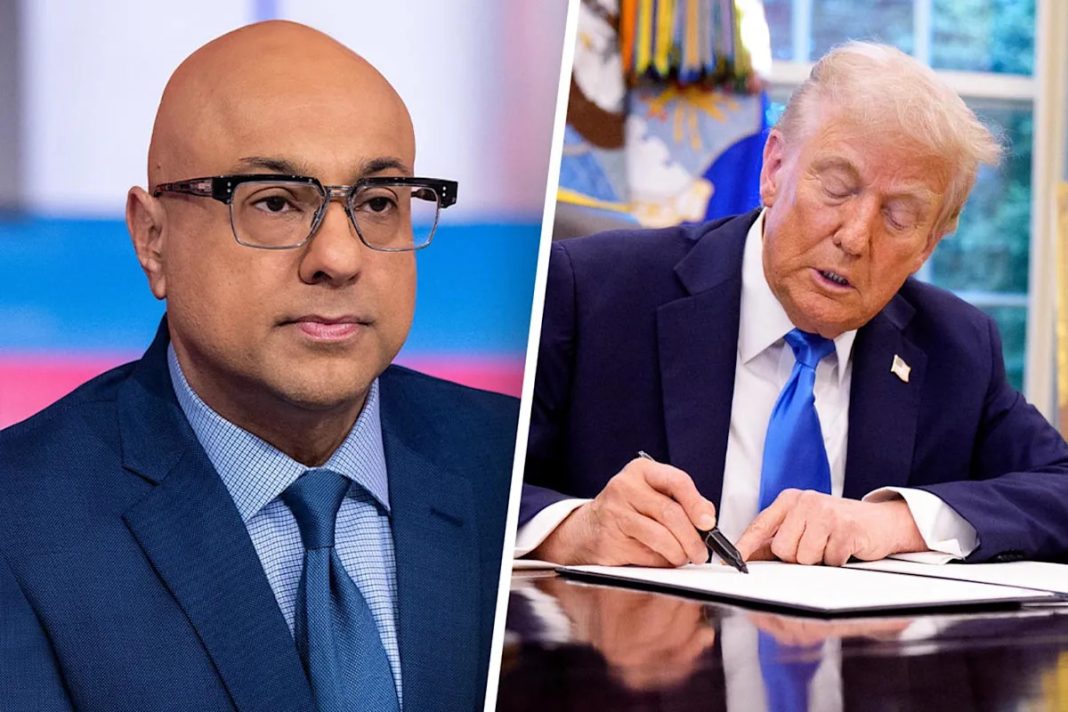This is an adapted excerpt from the Sept. 28 episode of “Velshi.”
For many foreign workers, America is feeling less and less like a land of opportunity. The world’s best and brightest are starting — slowly for now, and not entirely willingly — to turn away from the United States, saying it’s unstable, unwelcoming and too expensive to work here.
Earlier this month, Donald Trump signed an executive proclamation that upended the visa process for high-skilled foreign workers. Under the new policy, employers who want to hire these individuals under an H-1B visa will now be forced to pay a $100,000 fee.
For decades, the H-1B visa has been a coveted program. If you have an H-1B, it means that America, the beacon of ingenuity and innovation, wants you working, researching and building in the U.S. Getting an H-1B visa has been a source of great pride for more than 30 years.
But now, for many, it’s simply not worth it. An Indian computer science graduate in Texas told Reuters: “I’ll move to Canada or Europe — anywhere that actually wants us.” And other countries do want them: China, Germany and other nations are rolling out new incentives to scoop up the same talent the U.S. is now pushing away.
Economists warn that the U.S. risks a brain drain that could undermine its global competitiveness. We’re losing the engineers, doctors and researchers who drive innovation and keep industries afloat. This isn’t just about tech or factories — it’s about the collapse of vital industries, like health care.
The health care industry has already been grappling with a shortage of doctors, nurses and skilled medical professionals. An analysis by the National Center for Health Workforce predicts the U.S. will face a shortage of more than 124,000 doctors by 2027.
The gap is only expected to widen in the decades to come. By 2037, the analysis predicts a shortage of more than 187,000 doctors in the U.S.
To fill gaps in health care coverage, the U.S. hires physicians from abroad. In 2024, nearly one-quarter of medical residents in the U.S. were foreign nationals, according to the Association of American Medical Colleges. Last year alone, the Department of Homeland Security estimates that 17,000 medical professionals came here on H-1B visas.
However, due to the new administration’s new policy, the American Medical Association and other groups are now warning that rising visa costs will drive these physicians away, leaving patients without care.
“The U.S. health care workforce relies upon physicians from other countries to provide high-quality and accessible patient care,” the physicians groups wrote in a letter to Homeland Security Secretary Kristi Noem, adding that they “urge the Administration to categorically consider H-1B physicians’ entry into the U.S. to be in the national interest of the country, and waive the new application fee for H-1B physicians, so they can continue to be a pipeline that provides health care to U.S. patients.”
This article was originally published on MSNBC.com

